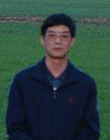|
 Name: YUE Tian-Xiang Name: YUE Tian-Xiang
Current Appointment: Professor
Education
From August 1989 to July 1992, he studied for doctoral degree in Center for Eco-Environmental Research of Chinese Academy of Sciences. The topic of doctoral thesis was Systems Models for Land Management and Their Applications. He edited the research report series: Systems Ecology.
From August 1986 to July 1989, he studied for master degree in Geographical Department of Lanzhou University. He undertook the major part, Modeling Land Carrying Capacity of the West of Yellow River of Gansu province (Hexi), of the UNESCO project, a Study of Feasibility Immigrating People into Hexi. With postgraduate students and professors in Mathematical Department of Lanzhou University together, he translated a book, Mathematical Statistics, written by Peter J. Bickel and Kjell A. Doksum.
From August 1980 to July 1984, he studied for bachelor degree in Mathematical Department of Shanxi Normal University in China.
Academic Appointments
Since December of 1999, he has been working as a leading professor of State Key Laboratory of Resources and Environment Information System, Institute of Geographical Sciences and Natural Resources Research, Chinese Academy of Sciences. He has been entitled to supervise Ph.D. students in China since 2000. He is paying attention to high accuracy surface modeling and its applications such as spatially explicit simulation and multi-scale issues, model for fusion of information from different sources, model base system and its integration with GIS.
From July 1998 to December 1999, he was a senior visiting professor of the State Key Laboratory of Resources and Environment Information System. He paid attention to models for ecosystem assessment and for detecting environmental change.
From April 1995 to May 1998, he worked as a postdoctoral scientist in Center for Environmental Research of Germany. The research topic was modeling major issues in the strategic management system of land such as biological diversity, land productivity, land carrying capacity, ecosystem stability, landscape pattern and holistic characteristics of land.
From August 1992 to March 1995, he worked in Ministry of Science and Technology of People’s Republic of China. He took part in the activities concerned with transnational development projects. He paid attention to modeling major issues in the regional development.
From August 1984 to July 1986, he worked as an assistant in Mathematical Department of Qingyang College in China.
Areas of Specialization
Tian Xiang YUE is working as the leading professor of ecological modelling and spatially explicit simulation in State Key Laboratory of Resources and Environment Information System, Institute of Geographical Sciences and Natural Resources Research, Chinese Academy of Sciences.
He has innovatively developed a method of high accuracy surface modeling, a method of surface modelling of human population distribution in China, a change detection model, an ecological threshold model, a scaling ecological diversity model, and a patch connectivity model as well as a modelbase management system. He has simulated change trends of terrestrial ecosystems and population distribution since 1960s and scenarios of terrestrial ecosystems, land cover, and population distribution in future 90 years as well as food provision capacity of major
Office Address
Prof. Dr. Tian Xiang YUE
Research Group Leader of Ecological Modelling and Spatially Explicit Simulation
State Key Laboratory of Resources and Environment Information System
Institute of Geographical Sciences and Natural Resources Research
Chinese Academy of Sciences
11A, Datun Road, Anwai, 100101 Beijing, China
Tel.: 0086-10-64889041
Fax: 0086-10-64889630
E-mail1:yue@lreis.ac.cn.
|